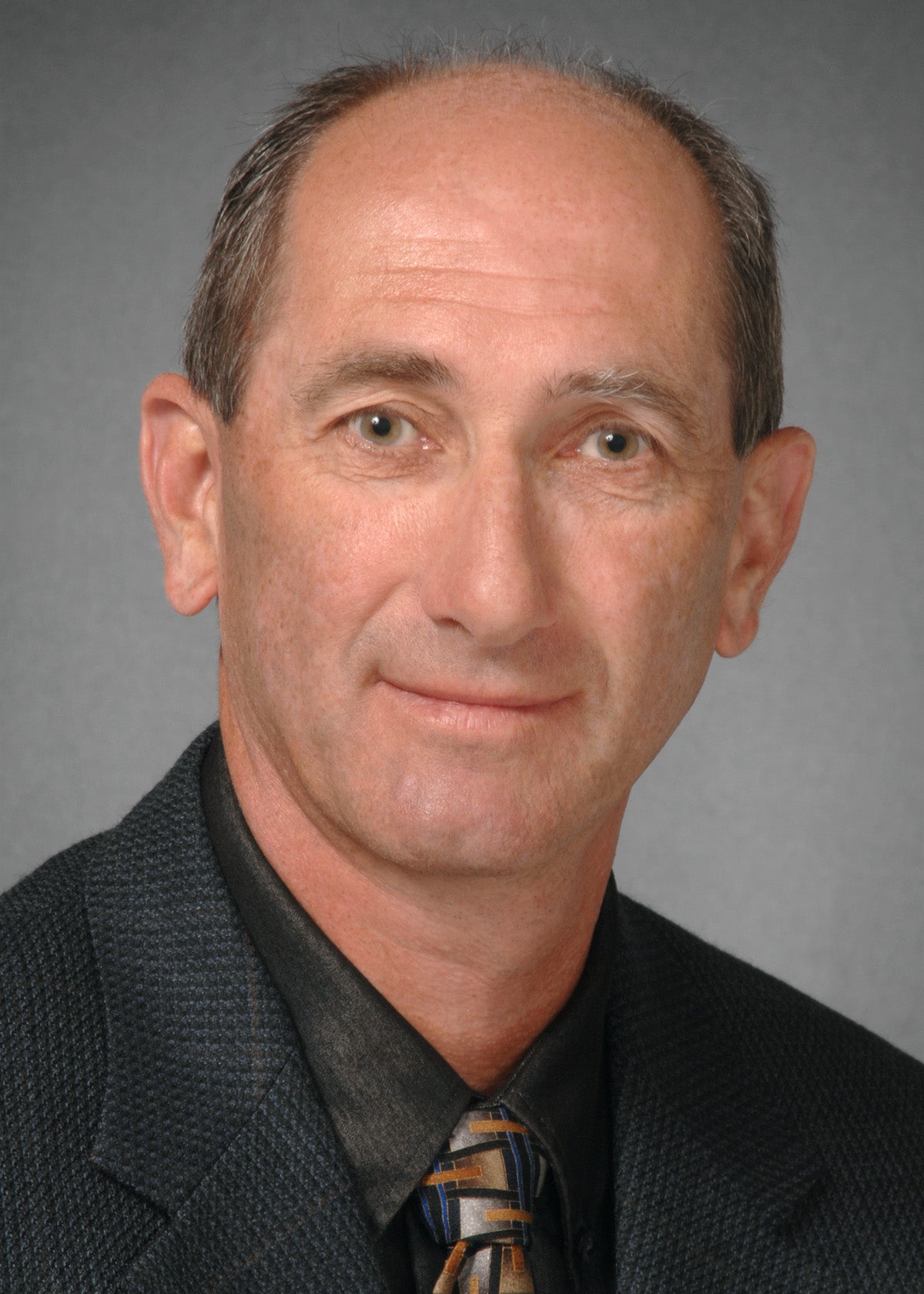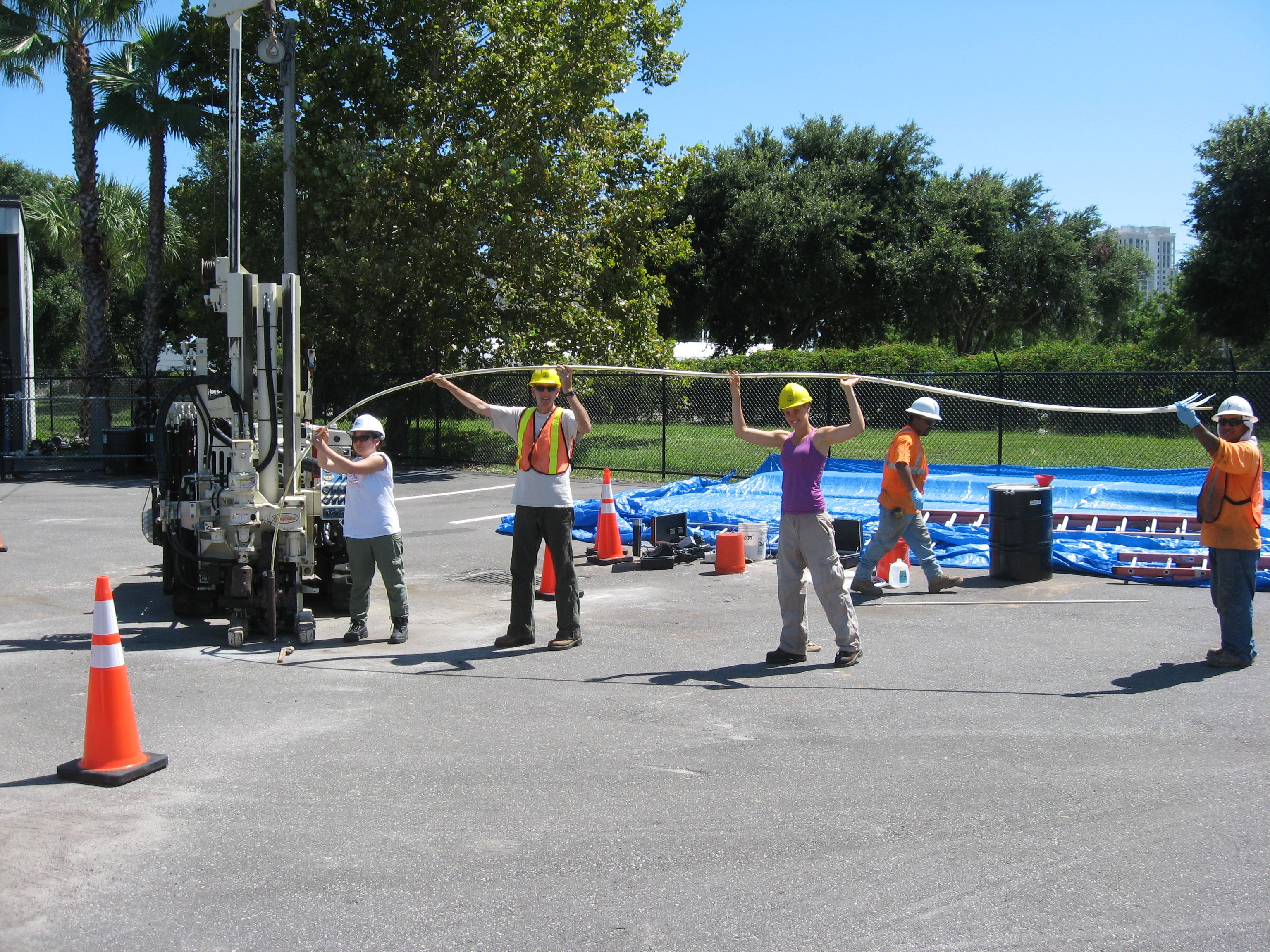Beyond retirement: Dr. Neil Thomson continues to advance groundwater remediation through research and mentorship

Dr. Neil Thomson, internationally recognized groundwater remediation expert and long-time Water Institute member, was named Distinguished Professor Emeritus by the University of Waterloo in 2024 in recognition of his outstanding scholarly achievements and leadership. Now officially retired after more than 35 years with the Department of Civil and Environmental Engineering, Dr. Thomson continues to lead impactful research and mentor the next generation of environmental engineers.
Throughout his career, Dr. Thomson has shaped the field of contaminant hydrogeology—developing new approaches for investigating and remediating groundwater systems impacted by petroleum hydrocarbons and emerging contaminants like PFAS. As Director of the Soil and Groundwater Remediation Engineering Group at Waterloo and a prolific scholar with more than 300 publications, he has built a legacy of scientific excellence and international collaboration.

“Semi-retired life has given me the opportunity to choose when I want to devote energy to rewarding research endeavors and allowed me ample time for personal pursuits and leisure activities as I transition into ‘full retirement,” said Dr. Thomson.

Neil Thomson - on The Great Wall of China
Now operating as Distinguished Professor Emeritus, Dr. Thomson remains deeply engaged in the research landscape. He continues to supervise graduate students at the University of Waterloo and elsewhere, and brings his expertise in groundwater remediation, subsurface contaminant transport, risk analysis, and multiphase flow to a wide range of projects, including through his company, N.R. Thomson and Associates Inc. His work—often grounded by experimental evidence, engineering fundamentals, and supported by advanced modelling—is regularly sought by regulatory agencies, consulting firms, and academic partners worldwide.
Among his current research efforts is a collaborative project with Elizabeth Edwards at University of Toronto exploring new ways to clean up petroleum-contaminated groundwater. The team is studying the use of activated carbon which can be injected underground to form a subsurface barrier that traps and gradually breaks down harmful chemicals. The project integrates lab experiments, field trials, and modelling to assess how well this approach works, especially in low-oxygen environments.
He’s also working with the University of Toronto and the environmental biotech company SiREM to improve “bioaugmentation”, a cleanup method that adds beneficial bacteria to help break down petroleum hydrocarbons like benzene, toluene, and xylene. Dr. Thomson’s team is supporting lab and field testing and uses modelling tools to track performance underground.
Another active area of work focuses on improving the long-term immobilization of PFAS using activated carbon a collaborative project led by Dr. Anh Pham at Waterloo. Funded by the U.S. Department of Defense’s Strategic Environmental Research and Development Program (SERDP), this project involves academic and industry partners including Geosyntec Consultants and the University of Toronto, with Dr. Thomson playing a key role in experimental design and student mentorship.
He also contributes to the project SACRE | Integrated water solutions for resilient cities, an international collaboration between the Water Institute and the University of São Paulo, funded by the São Paulo Research Foundation FAPESP, aiming to reduce water vulnerability in Brazil through nature-based and hybrid treatment systems. The project combines groundwater and surface water models, low-cost remediation strategies, and socio-economic analyses to support sustainable water management in drought-prone urban areas.
Known for his collaborative spirit and commitment to applied research, Dr. Thomson has also served as Editor-in-Chief of Groundwater Monitoring and Remediation, served on the Editorial Board of Journal of Contaminant Hydrology, chaired his academic department, and received multiple teaching and performance awards. He has supervised dozens of graduate students, many of whom now hold influential roles in academia, government, and environmental consulting. Former students speak highly of Dr. Thomson’s lasting influence as both a teacher and a mentor.

“Dr. Neil Thomson was my Master’s supervisor, and I could not have asked for a more engaged and focused mentor,” said Bruce Tunnicliffe, President of VEI Contracting Inc. “While his high standards were definitely challenging to meet, it ultimately made me a better engineer and practitioner, and I thank Neil for shaping my mind and work ethic today. He taught me to look deep into the details, but to also relate findings within the big picture. After grad school, Neil and I kept in touch, and he remained interested in, and supported, my work and career. I could not have asked for a better teacher, mentor, and friend.”
Kevin Mumford, now Professor and Associate Dean at Queen’s University, echoes that sentiment.
“Neil Thomson is a remarkable supervisor. It was always clear that, as a teacher and a mentor, he wanted you to understand,” said Mumford. “He could step in with support or encouragement, or a little nod, or maybe a chuckle, that let you know you were on the right track. An enviable combination of intelligence, patience and a dry sense of humour. I can draw a straight line from my classes and research with Neil to how I teach and supervise students today.”
The Water Institute celebrates Dr. Thomson’s ongoing contributions to groundwater remediation and graduate mentorship. His work continues to reflect the values of interdisciplinary research, real-world impact, and a deep commitment to advancing water sustainability.